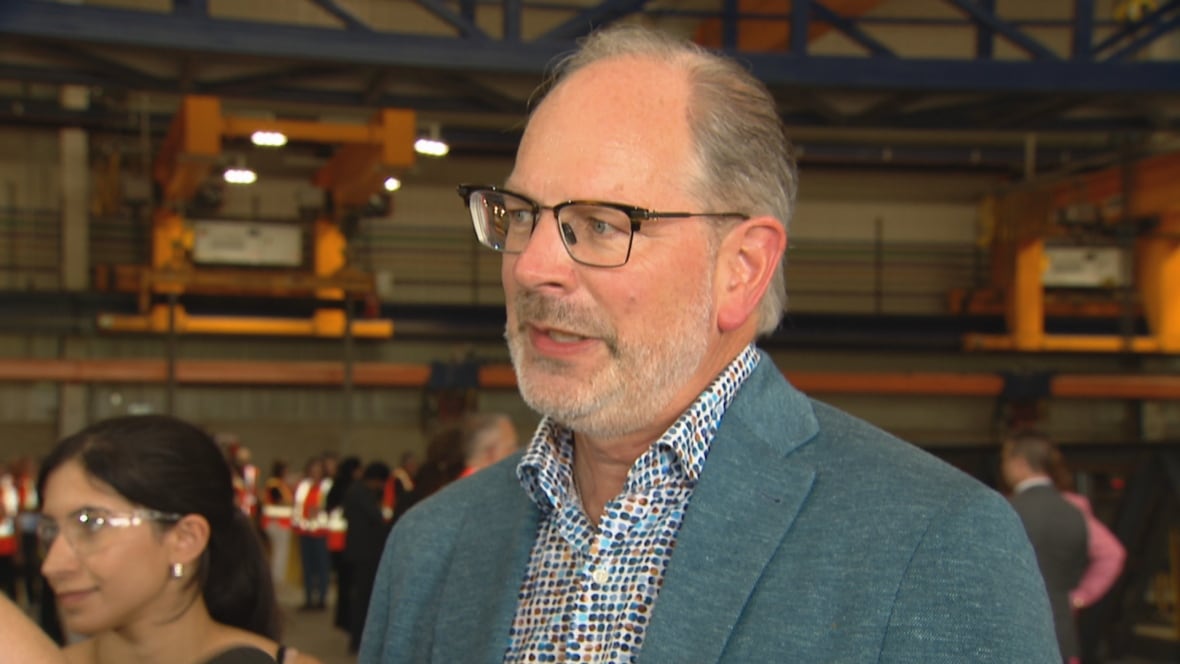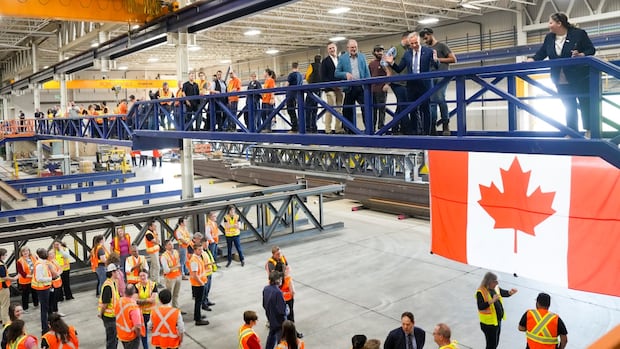A Hamilton steel fabricator says it has lost a huge chunk of its U.S. business as President Donald Trump’s steep tariffs persist.
But Walters Group has also picked up enough work in Canada — including for the new Calgary Flames arena — to avoid layoffs for the time being, said executive vice-president Walt Koppelaar.
He told reporters Wednesday that before the U.S. imposed tariffs earlier this year, about 70 per cent of Walters Group’s steel fabrications were exported to the U.S. Now, that number is nearly zero.
“We have to be very focused on Canadian work,” Koppelaar said. “We got things going on south of the border we can’t control. But what we can control is here in Canada. Let’s make Canada the best and let’s support Canadian steel fabricators.”
Trump first imposed 25 per cent tariffs on the Canadian steel and aluminum sectors in March, then hiked them to 50 per cent in June. The U.S. has also levied similar tariffs on many other countries, including China.
Koppelaar described China as a “bad actor” and supports Canada’s attempts to clamp down.
“When the U.S. closes its borders to certain products, Canadian borders are still open and all that fabricated steel is coming into Canada,” he said.
Prime Minister Mark Carney, speaking Wednesday in Hamilton at an event about steel, declined to offer specifics around negotiations with the U.S., saying ‘we’ll see,’ when pressed on whether Canada would impose more tariffs.
The most recent of Canada’s attempts came earlier Wednesday, when Koppelaar stood alongside Mark Carney as the prime minister toured the facility and promised to limit the amount of cheap, foreign steel entering the country.
Carney said new quotas would be in place by the end of the month, building off of changes his government announced in June. The tariff quota system allows only a set level of product to enter Canada at a lower tariff rate.
Calls for more protections for domestic market
Steel products from non-free trade agreement countries, including China, will see their tariff rate quota tighten to half of 2024 volumes. A 50 per cent tariff will be imposed on any imports beyond those levels, Carney said.
Countries with free trade agreements with Canada, excluding the U.S. and Mexico, will see a 50 per cent tariff applied to imports surpassing 2024 volumes. The prime minister also said Canada will implement additional tariffs of 25 per cent on imports from all non-U.S. countries containing steel melted and poured in China.

It’s a step in the right direction, said Koppelar, but he and other Canadian steel producers are waiting for more changes from the federal government.
When Ottawa financially supports big companies and automakers setting up in Canada, there should be “more strings attached” so steel is sourced domestically and not from the U.S. or China, he said.
That’s also important for public infrastructure projects, said Keanin Loomis, president and CEO of the Canadian Institute of Steel Construction. The Hamilton resident was also at Carney’s announcement Wednesday and supports the quota tariff measures.
While initially the companies using domestic steel may be entering higher bids for contracts, the quality is higher than steel made or fabricated in countries like China, and with less issues down the line, Loomis said.
“I think Canadian taxpayers expect that when they’re checking the labels of their food right now in grocery stores and being mindful of where they’re travelling, that when we’re building a bridge in Canada, we’re supporting Canadian firms because that money circulates within our economy.”
The government has made changes to the federal procurement process, only awarding projects to companies using Canadian steel unless the materials aren’t available domestically.

